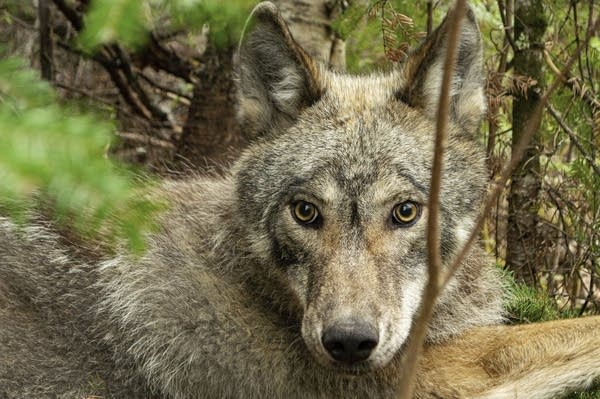Wisconsin wolf hunt overshoots quota, worrying conservationists

Go Deeper.
Create an account or log in to save stories.
Like this?
Thanks for liking this story! We have added it to a list of your favorite stories.
By Christie Taylor, Science Friday
Wisconsin’s wolf hunt ended after just three days, with licensed hunters killing 216 wolves, far exceeding the state’s allowed quota.
One of the final acts of the Trump Administration in late 2020 was to remove the gray wolf from the federal endangered species list. The U.S. Fish and Wildlife Service officially removed the species, which was once nearly extinct in the lower 48 states, in January. The wolves now number more than 6,000 in the northern Rockies and the western Great Lakes states.
In Wisconsin, a 2012 state law requires an annual wolf hunt when the animals are not under federal protection. State wildlife officials had begun planning for a hunt next November, but were forced by a lawsuit from an out-of-state hunting group to hold one before the end of February. That hunt lasted only three days before state officials shut it down: Licensed hunters killed 216 wolves in that time, more than 80 percent over the allowed quota of 119, and nearly 20 percent of the state’s estimated 1,000-plus wolves.
Adrian Treves, a professor of environmental science at the University of Wisconsin-Madison told Science Friday that the hunt could lead to the animal becoming endangered again.
“I think what the Wisconsin wolf hunt shows us is how quickly a determined group of hunters and poachers can reduce a wolf population to the level where it's going to be endangered again,” he said.
Treves is concerned about the timing of the hunt, which happened during mating season. “So, we can't expect normal reproduction in the coming year in 2021,” Treves said. “And we actually have no idea how badly the reproduction will be affected and harmed.”
Minnesota’s Department of Natural Resources hasn’t yet decided whether to resume wolf hunting in the state.
Turn Up Your Support
MPR News helps you turn down the noise and build shared understanding. Turn up your support for this public resource and keep trusted journalism accessible to all.



